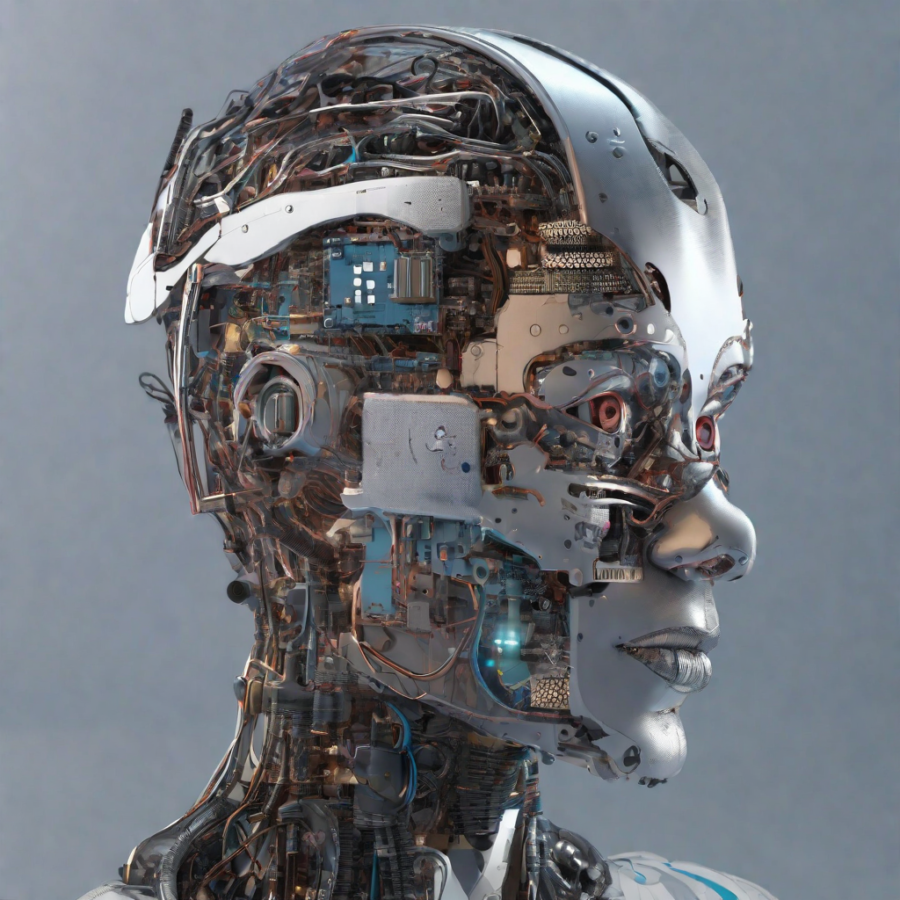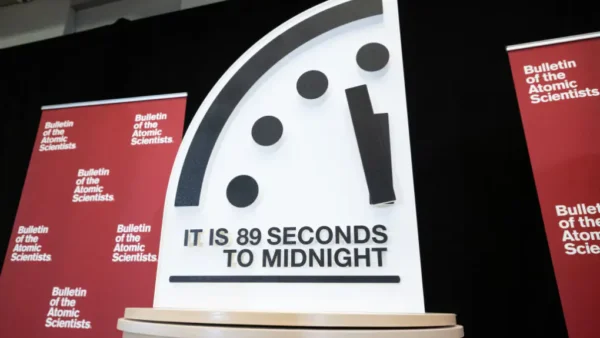The winds of technological change are howling, and at the helm of this storm stands artificial intelligence (AI). From self-driving cars to facial recognition software, AI is already woven into the fabric of our lives. But as we peer into the future, a crucial question emerges: will technology and AI usher in a golden age of progress, or will they lead us down a dystopian path?
The Power of Technology and AI: A Double-Edged Sword
Technology and AI potential is undeniable. It promises to revolutionize industries, optimize healthcare, and tackle global challenges like climate change. In healthcare, AI-powered diagnostics can detect diseases earlier, leading to better treatment outcomes. In agriculture, AI-driven robots can optimize crop yields and revolutionize farming practices. On a larger scale, AI can analyze vast datasets to identify patterns in climate change, paving the way for more effective mitigation strategies.
However, the same power that empowers also carries risks. Job displacement due to automation is a major concern. As AI takes over repetitive tasks, millions of jobs could be lost, potentially leading to social unrest and economic instability. Additionally, the ethical implications of AI are complex and far-reaching. Biased algorithms could perpetuate discrimination, and the potential for autonomous weapons raises alarming concerns about warfare.
The Human Factor
The future with AI is not predetermined. It hinges on the choices we make today. We must ensure that AI development is guided by ethical principles and focuses on human well-being. Here are some key points to consider:
- Human-centered AI: Instead of AI replacing humans, it should augment our capabilities. We need to focus on developing AI that complements human strengths and weaknesses, not replaces them.
- Responsible development: Robust regulations and ethical frameworks are crucial to mitigate the risks of AI. We need transparent development processes and clear guidelines for how AI is used to ensure fairness, accountability, and privacy.
- Upskilling and reskilling: As jobs are automated, we need to invest in education and training programs that equip individuals with the skills needed to thrive in the AI-driven economy.
- Global collaboration: The challenges and opportunities of AI are global, requiring international cooperation to ensure responsible development and equitable access to its benefits.
An Uncertain Future, but One We Can Shape
Ultimately, whether technology and AI shape a positive or negative future depends on us. By harnessing its power responsibly and ethically, AI can be a force for good, solving some of humanity’s most pressing challenges. However, if left unchecked, it could exacerbate existing inequalities and pose significant threats. The future is not predetermined; it’s a path we pave with our choices today. Let’s choose wisely, ensuring that technology serves humanity, not the other way around.
The Binary Debate
The debate surrounding technology and AI often falls into two camps: utopian dreams of human-machine collaboration and dystopian nightmares of robot overlords. While these extremes paint vivid pictures, the reality of AI’s impact will likely be far more nuanced.
The Spectrum of AI Impact
While automation is a concern, it’s not the only story. AI can create new jobs, particularly in areas like AI development, data analysis, and human-machine interaction. Additionally, automation can free up human resources for more creative and strategic tasks, leading to increased productivity and innovation.
Instead of a binary job-loss vs. job-gain scenario, we might see a shift in the types of jobs available. This necessitates focusing on upskilling and reskilling the workforce to adapt to the changing demands of the AI-driven economy.
The Human-AI Symbiosis
AI’s true potential lies not in replacing humans, but in complementing our strengths and weaknesses. While AI excels at data analysis and pattern recognition, humans possess crucial skills like creativity, critical thinking, and social intelligence. The future of work will likely see humanos and AI collaborating, each contributing their unique strengths to achieve optimal outcomes.
Imagine doctors using AI-powered diagnostics to gain deeper insights into patient data, while still relying on their human intuition and empathy to provide personalized care. Or envision engineers leveraging AI to optimize designs, while their human creativity drives innovation beyond the realm of pure logic.
Beyond Fear: Building a Responsible AI Future
The ethical implications of AI cannot be ignored. Bias in algorithms can perpetuate discrimination, and autonomous weapons raise serious concerns about the future of warfare. It’s crucial to develop AI guided by ethical principles like fairness, transparency, and accountability.
Public discourse and engagement are key. We need open discussions about the values we want to embed in AI and the regulations we need to implement to ensure its responsible development and use.
A Global Challenge, a Global Opportunity
The impact of AI will be felt globally, requiring international collaboration to ensure equitable access to its benefits and mitigate potential risks. Developing countries should be included in the conversation, ensuring they are not left behind in the AI revolution.
Investment in research and development, particularly in areas like AI safety and explainability, needs to be a global effort. By working together, nations can ensure that AI becomes a force for good, uplifting humanity across the globe.
The future with AI is not set in stone. By acknowledging its potential pitfalls and actively shaping its development, we can ensure that technology serves as a tool for progress, not a harbinger of doom. The future is not a binary choice between utopia and dystopia; it’s a path we pave with our choices, our values, and our collective action…

Originally posted 2024-02-22 15:53:54.





There are 2 comments